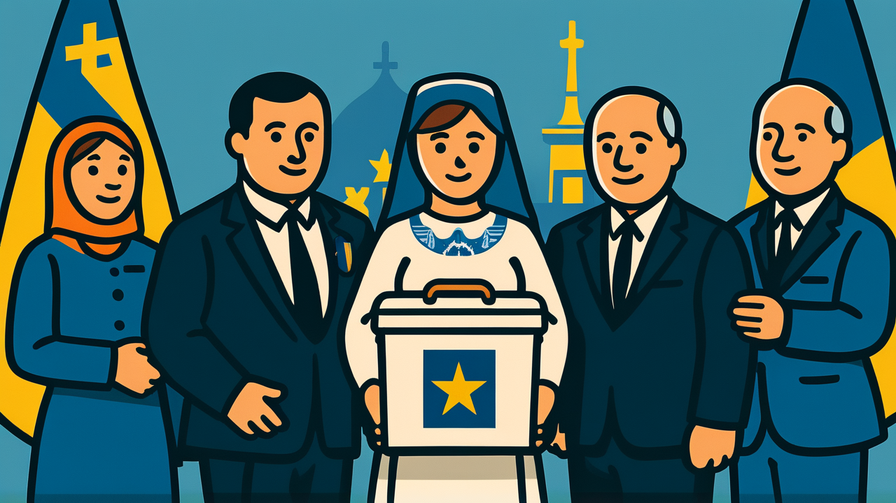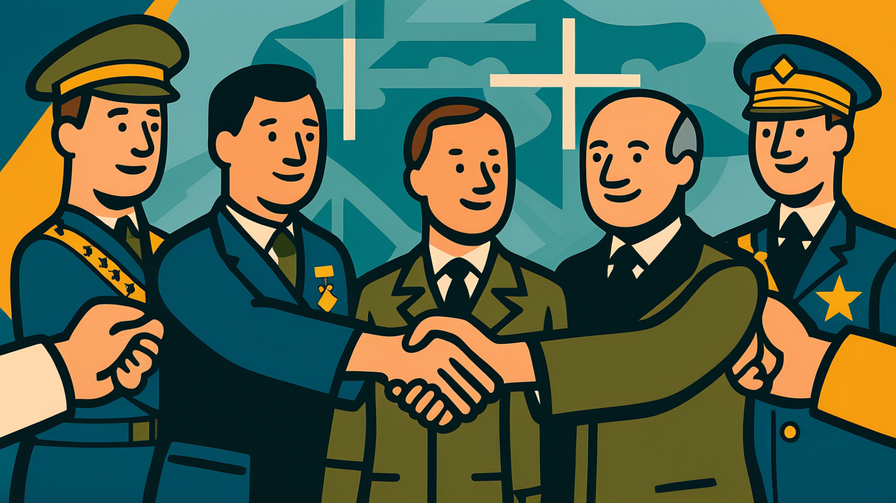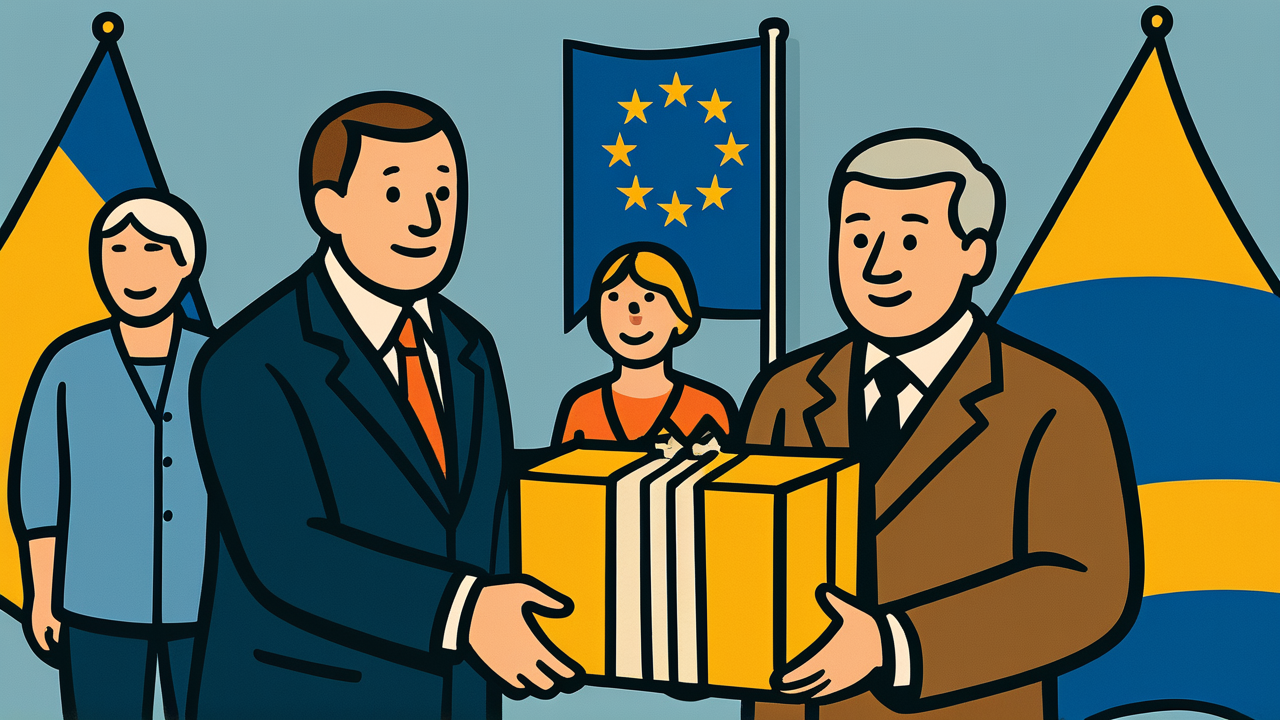[Disclaimer] This article is reconstructed based on information from external sources. Please verify the original source before referring to this content.
News Summary
The following content was published online. A translated summary is presented below. See the source for details.
The European Commission has released a comprehensive factsheet detailing the European Union’s continued solidarity with Ukraine. Published on July 22, 2025, in Brussels, this document outlines the multifaceted support the EU provides to Ukraine across various sectors. The solidarity encompasses financial assistance, humanitarian aid, support for refugees, energy sector assistance, and steps toward Ukraine’s EU membership candidacy. The EU’s approach combines immediate emergency support with long-term reconstruction planning, demonstrating unprecedented unity among member states. This ongoing commitment represents one of the largest support packages in EU history, reflecting the bloc’s dedication to supporting Ukraine’s sovereignty, democratic development, and European integration aspirations during challenging times.
Source: European Commission Press Corner
Our Commentary
Background and Context

The European Union consists of 27 countries working together on economic and political matters. Think of it like a club where European countries agree to common rules and help each other. Ukraine, while not currently an EU member, has deep historical and cultural ties to Europe.
Since February 2022, when Russia launched a full-scale invasion of Ukraine, the EU has provided unprecedented support to help Ukraine defend itself and maintain essential services. This isn’t just about politics – it’s about helping millions of ordinary people who need electricity, clean water, schools, and hospitals to function.
The concept of “solidarity” means standing together and helping others in difficult times. For the EU, supporting Ukraine represents core European values: democracy, human rights, and the rule of law.
Expert Analysis
The EU’s support for Ukraine goes far beyond symbolic gestures. Financial assistance alone exceeds €85 billion when combining EU institutions and member state contributions. This makes it one of the largest international support efforts in modern history.
The support is strategically diverse. Military assistance helps Ukraine defend itself, while civilian aid keeps society functioning. Energy infrastructure support is crucial – imagine trying to study or work without electricity! The EU has helped repair power plants and provided generators to hospitals and schools.
Perhaps most significantly, the EU granted Ukraine candidate status for membership in June 2022, opening a path for eventual EU membership. This process typically takes years but represents hope for Ukraine’s European future.
Additional Data and Fact Reinforcement
The EU’s solidarity includes hosting over 4 million Ukrainian refugees, with Poland, Germany, and Czech Republic accepting the most. EU countries provide free healthcare, education, and work permits to refugees, allowing children to continue school and adults to support themselves.
Educational support is particularly important. Over 500,000 Ukrainian children are enrolled in EU schools, with many schools hiring Ukrainian-speaking teachers and providing psychological support. Universities across Europe offer scholarships to Ukrainian students whose education was disrupted.
The EU has also implemented 14 packages of sanctions against Russia, targeting its economy to pressure an end to the conflict. These sanctions affect trade, technology exports, and financial transactions.
Related News
The solidarity extends beyond government action. European citizens have shown remarkable support through donations, hosting refugees in their homes, and organizing humanitarian convoys. Many European cities have partnerships with Ukrainian cities, providing direct assistance.
The EU is already planning Ukraine’s reconstruction, estimated to cost over €400 billion. This “Marshall Plan” style approach would modernize Ukraine’s infrastructure, making it compatible with EU standards. Green energy and digitalization are key priorities.
Summary

EU solidarity with Ukraine represents more than emergency aid – it’s a long-term commitment to Ukraine’s European future and democratic values. This support helps Ukraine survive current challenges while building foundations for post-conflict recovery and eventual EU membership. For young Europeans and Ukrainians, this solidarity shapes the future of the continent, demonstrating that European nations stand together during crises. The comprehensive approach – from immediate humanitarian aid to long-term reconstruction planning – shows how international cooperation can address complex challenges.
Public Reaction
Public opinion polls show strong support across EU countries for helping Ukraine, with over 70% of EU citizens backing continued assistance. Many young Europeans participate in fundraising efforts, with schools organizing drives for humanitarian supplies. Ukrainian refugees express gratitude for the welcome they’ve received, while some EU citizens raise concerns about the long-term costs and integration challenges.
Frequently Asked Questions
How does EU support actually reach people in Ukraine? The EU works through international organizations like the UN and Red Cross, as well as directly with Ukrainian government ministries. Aid includes everything from medical supplies delivered to hospitals to funds for paying teachers’ salaries.
Can Ukraine really join the EU? Yes, but it’s a long process. Ukraine must align its laws and standards with EU requirements, which typically takes 10-15 years. The candidate status is the first official step in this journey.
How does this affect students in EU countries? Many schools have welcomed Ukrainian students, creating cultural exchange opportunities. Some schools organize pen pal programs or joint online classes, helping students understand different perspectives and build international friendships.


